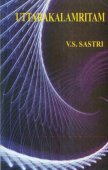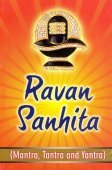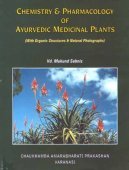Ashin, Aśin, Āśin: 11 definitions
Introduction:
Ashin means something in Hinduism, Sanskrit, Hindi, biology. If you want to know the exact meaning, history, etymology or English translation of this term then check out the descriptions on this page. Add your comment or reference to a book if you want to contribute to this summary article.
Ashin has 10 English definitions available.
The Sanskrit terms Aśin and Āśin can be transliterated into English as Asin or Ashin, using the IAST transliteration scheme (?).
Languages of India and abroad
Sanskrit dictionary
[Deutsch Wörterbuch]
Source: Cologne Digital Sanskrit Dictionaries: Böhtlingk and Roth Grosses Petersburger WörterbuchAśin (अशिन्):—(von 1. aś) adj. weitreichend, dauernd [Yāska’s Nirukta 4, 14.] superl. aśītama [Vājasaneyisaṃhitā 2, 20] : agne dabdhāyo śītama (vgl. 1. aś mit āyus u. dgl.).
--- OR ---
Āśin (आशिन्):—(von 2. aś) adj. am Ende eines comp. essend: sāyaṃprātarāśin [The Śatapathabrāhmaṇa 2, 4, 2, 6.] amāṃsāśin [14, 1, 1, 29.] [Kātyāyana’s Śrautasūtrāṇi 22, 7, 19.] madhvā [5, 2, 21.] [Manu’s Gesetzbuch 2, 118. 3, 109. 158. 285. 11, 72. 218. 12, 71.] [Bhagavadgītā 3, 13. 18, 52.] [Rāmāyaṇa 3, 33, 24. 73, 4. 5, 11, 8. 6, 75, 20.] [Suśruta 2, 26, 11.] [Pañcatantra 59, 10.] [Cāṇakya 69.] bhikṣāśitva [Hitopadeśa I, 129.] nānāśitva [Mahābhārata 3, 13450.] anāśitva [13447.] nirāśitva [13994.]
--- OR ---
Āśin (आशिन्):—[?Z. 5 Mahābhārata 3, 13450] gleichfalls anāśitva das Nichtessen. nirāśitva (vgl. nirāśin) [Mahābhārata 3, 13994] bedeutet das Aufgeben aller Hoffnungen, - Wünsche; st. dessen nirāśīstva [12, 12440.] — Vgl. pavanāśin, pūrvāśin, phalāśin, mātrāśin .
--- OR ---
Āsin (आसिन्):—(von 2. as) adj. werfend, schiessend; s. pūrvāsin .
Source: Cologne Digital Sanskrit Dictionaries: Sanskrit-Wörterbuch in kürzerer FassungAśin (अशिन्):—Adj. weitreichend , dauernd.
--- OR ---
Āśin (आशिन्):—Adj. essend , geniessend.
--- OR ---
Āsin (आसिन्):—Adj. werfend , schleudernd , in pūrvāsin.
Sanskrit, also spelled संस्कृतम् (saṃskṛtam), is an ancient language of India commonly seen as the grandmother of the Indo-European language family (even English!). Closely allied with Prakrit and Pali, Sanskrit is more exhaustive in both grammar and terms and has the most extensive collection of literature in the world, greatly surpassing its sister-languages Greek and Latin.
See also (Relevant definitions)
Starts with: Ashinamara, Ashinj, Ashinjita, Asina.
Ends with (+219): Abhasin, Abhibhashin, Abhilashin, Abhivashin, Abhravakashin, Adivashin, Aksharalavanashin, Alavanashin, Alpabhashin, Amamamsashin, Amamsashin, Amashin, Amedhyakunapashin, Amishashin, Amritaprasin, Amritashin, Anabhibhashin, Anabhilashin, Anarthanashin, Anashin.
Full-text (+56): Nakhashin, Niramishashin, Nirashin, Asina, Anilashin, Bahvashin, Kravyashin, Laghvashin, Purushashin, Pavanashin, Sarvashin, Aksharalavanashin, Amishashin, Jhampashin, Kiratashin, Bhaikshashin, Kundashin, Asin-uluko, Pinang asin, Bol-asin.
Relevant text
Search found 8 books and stories containing Ashin, Aśin, Asin, Āśin, Āsin; (plurals include: Ashins, Aśins, Asins, Āśins, Āsins). You can also click to the full overview containing English textual excerpts. Below are direct links for the most relevant articles:
Vipassana Meditation (by Chanmyay Sayadaw)
Vipassana Meditation Course (by Chanmyay Sayadaw)
The Great Chronicle of Buddhas (by Ven. Mingun Sayadaw)
Sakka’s Question (5): On how firm Opinion arises due to Illusory Concepts < [Chapter 39 - How the Āṭānāṭiya Paritta came to be Taught]
Part 2 - The Nine Supreme Attributes of the Buddha < [Chapter 42 - The Dhamma Ratanā]
Buddhist Education in Thailand (critical study) (by Smitthai Aphiwatamonkul)
6. Vinaya Rules: Life style of Buddhist monks < [Chapter 1 - Introduction]
3. Social Customs of Buddhist Monk in Thailand < [Chapter 4 - Role of the Buddhist Education in The Thai Society]
Impact of Vedic Culture on Society (by Kaushik Acharya)
1.E: Buddhist Expression of Charity < [Chapter 2]
C. R. Reddy < [October – December, 1980]
Related products
(+4 more products available)




